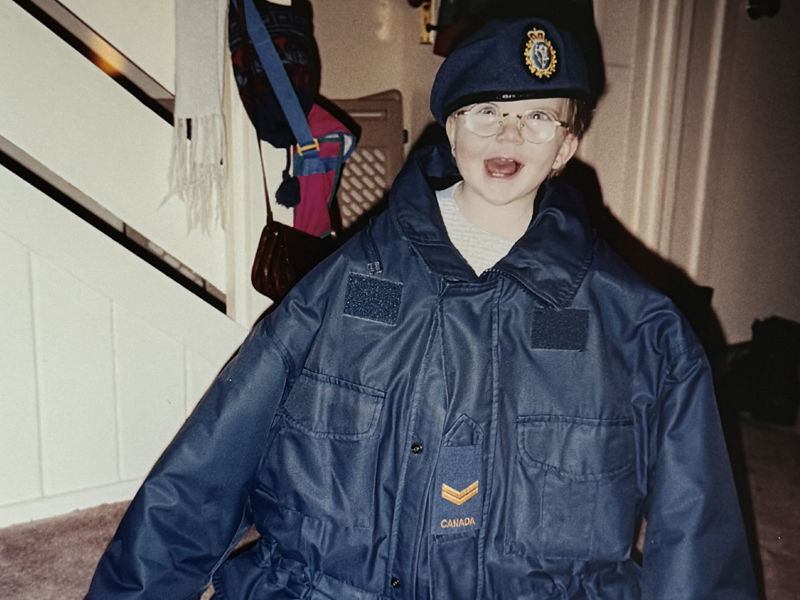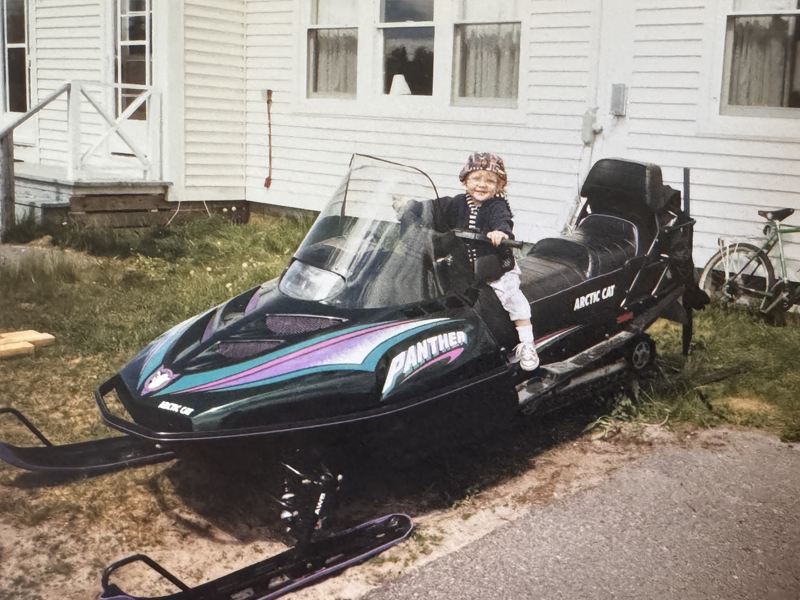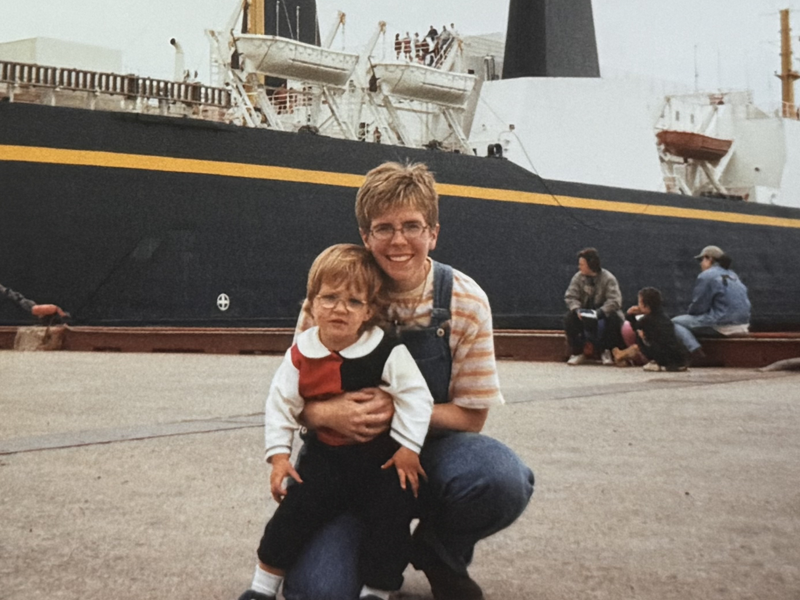- 2025-08-13
- Blog
Army brat through and through
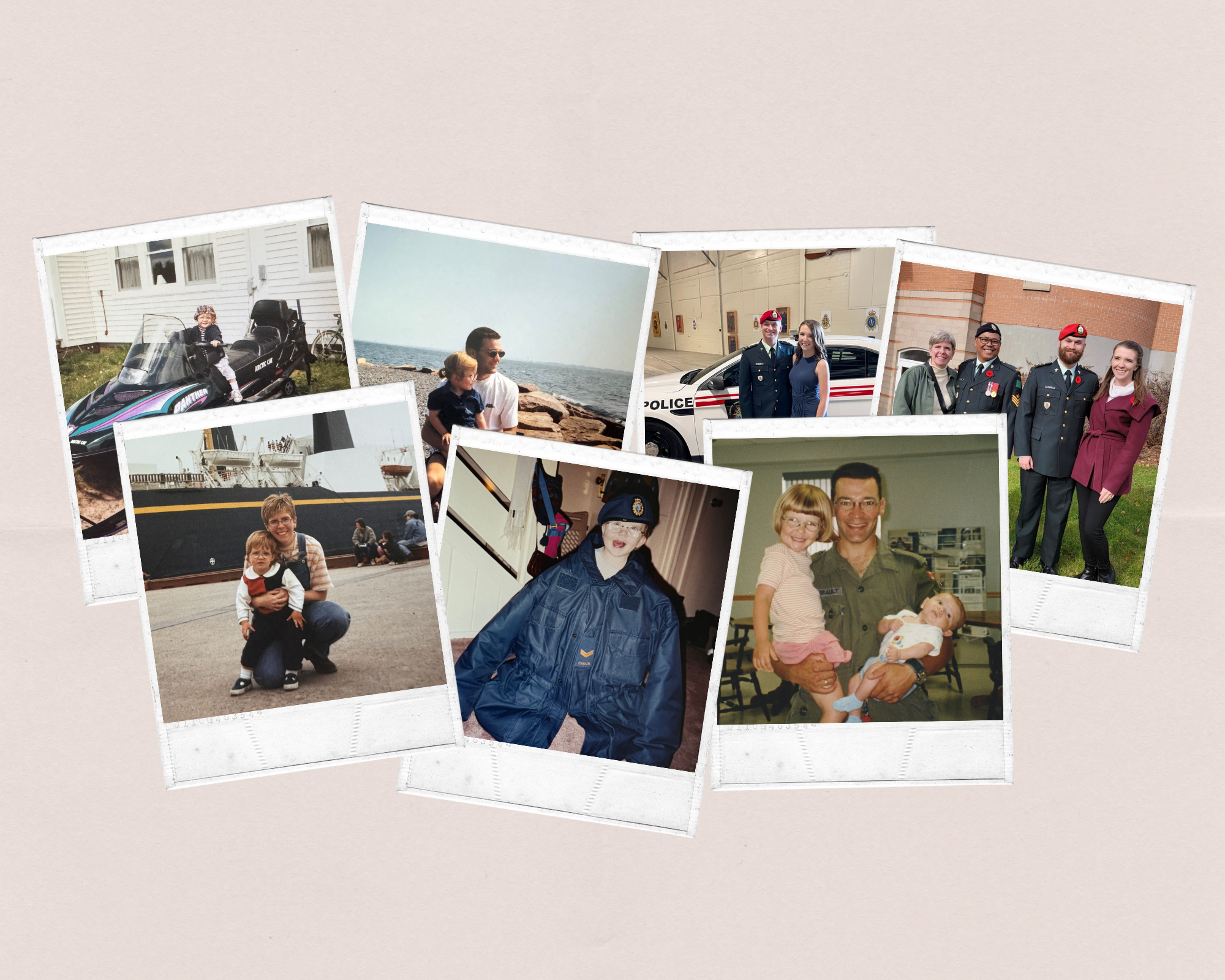
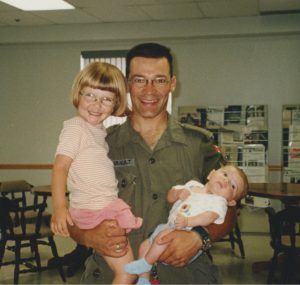
Like many military and Veteran children, being an “army brat” has always been a large part of my identity. Both my parents joined the Canadian Armed Forces (CAF) when they were barely old enough to vote. I got to live in places where the military is a big part of the community — namely Goose Bay, NL, Kingston, ON, Petawawa, ON, and now Ottawa, ON. We didn’t move around as much as a lot of the other military Families I knew, so I guess we were lucky in that sense. I moved to Ottawa for my post-secondary studies, and now that I’ve been here for nearly 11 years, I am itching for a change. That’s a long time in one place for a military kid!
My parents split when I was young and my mom eventually married another CAF member. I then had three military parents! My mom retired a few years ago after nearly 30 years in uniform, but both my dad and stepdad are still proudly serving today. They are both nearing the age of retirement and there is something that feels strange about that. I’ve always been the daughter of serving CAF members. Even once their uniforms have been handed in, I’ll always hold onto my “army brat” identity.
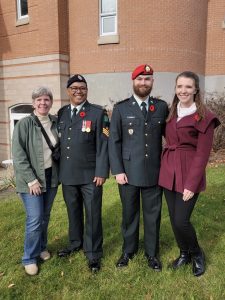
From left to right: Sgt (Ret’d) Ysabel Steel, Sgt Ian Steel, Capt Alexander Knarr, Lori-Anne Thibault
I decided not to follow my parents’ footsteps when it came time to apply for university. I didn’t want this lifestyle for myself and I didn’t want to settle down with a military man. I had said that I didn’t want my future Family to “live the life I lived.” It wasn’t a bad life by any means, but this was my dramatic teenage mantra. There were times when my parents were away on deployments, training exercises or courses, and there was an additional layer of complication when my mom was posted three hours away from where my dad lived. I had to say goodbye to friends more times than I can count, which was one of the hardest things to deal with as a kid. Little Lori-Anne really resented the CAF back then. Now that I’m older, I realize what a gift it was to grow up in a military Family. Sure, it wasn’t always easy, but I know now that being in a military Family shaped me into the woman I am today. I consider myself to be resilient, adaptable, good at making friends, independent and of course, overly punctual.
Despite insisting I would never… I, too, married a military member. My mom always says, “Never say never,” and she loves to remind me of what my teenage self would say. My husband is a Military Police Officer and because there were no other law enforcement members in my Family, the policing world was brand new to me at the time that we met. Naturally, we talked a lot about policing and what was in the news. I had learned a lot about it, so when a job posting came up to work in an organization supporting active Royal Canadian Mounted Police (RCMP) members, I jumped at the opportunity. There I learned more about the RCMP, what the members live through day to day and about the sacrifices they make for the safety of their communities.
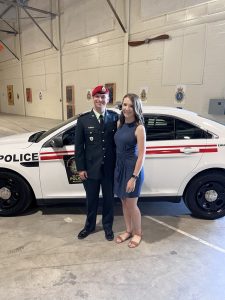
I learned about the regular exposure to trauma, the emotional calls, the loss of colleagues in the line of duty or to suicide, the missed birthdays and holidays, the heavy public scrutiny, and so much more. Despite all these things, these police officers show up for their communities. Their Families who stand by them also bear the weight of service, supporting their loved one and not knowing what to expect when they come home. It wasn’t something I had ever really thought much about, but once I knew, it became something that weighed on me constantly when I thought of my husband’s career. What will our life look like? What is my husband experiencing at work? Is he safe? I think of these questions a lot, and I know that it is a common experience for public safety personnel Families. My heart goes out to all of them, because I know how it isn’t easy to live with that anxiety.
One day, scrolling through my LinkedIn feed, I came across a job posting for a bilingual communications specialist at the Atlas Institute for Veterans and Families. I was already familiar with Atlas, and it felt like the stars had aligned at the perfect time. I joined the team and felt right at home. It is refreshing to see an organization where lived experience and the Family experience is embedded in everything we do, from the engagement with the community right down to the staff. Having a lifetime of lived experience as an “army brat” and as a police officer spouse, as well as RCMP-related work experience, means that I have an understanding of what Veterans and their Family members experience. That knowledge and experience motivates me in my work every day. Having lived experience feels like an extra instrument in my toolkit that I get the privilege to use to contribute to bringing mental health supports to a community that means so much to me.
— Lori-Anne
Lori-Anne Thibault
Bilingual Communications Specialist
Atlas Institute for Veterans and Families
Are you a Veteran or Family member with a story to tell? Get in touch with us and you may be featured on this blog!
